Experts shocked at North Korean leader Kim Jong-un’s dramatic weight change
The North Korean dictator was the guest of honour at a bizarre military parade and surprised onlookers with his dramatic weight change.
Experts have expressed surprise at Kim Jong-un’s altered physical appearance.
The North Korean dictator was the guest of honour at a military parade in the capital city Pyongyang this week.
The event included the bizarre sight of public health workers marching in gas masks and hazmat suits.
Thousands of people attended the event to mark the country’s 73rd anniversary.
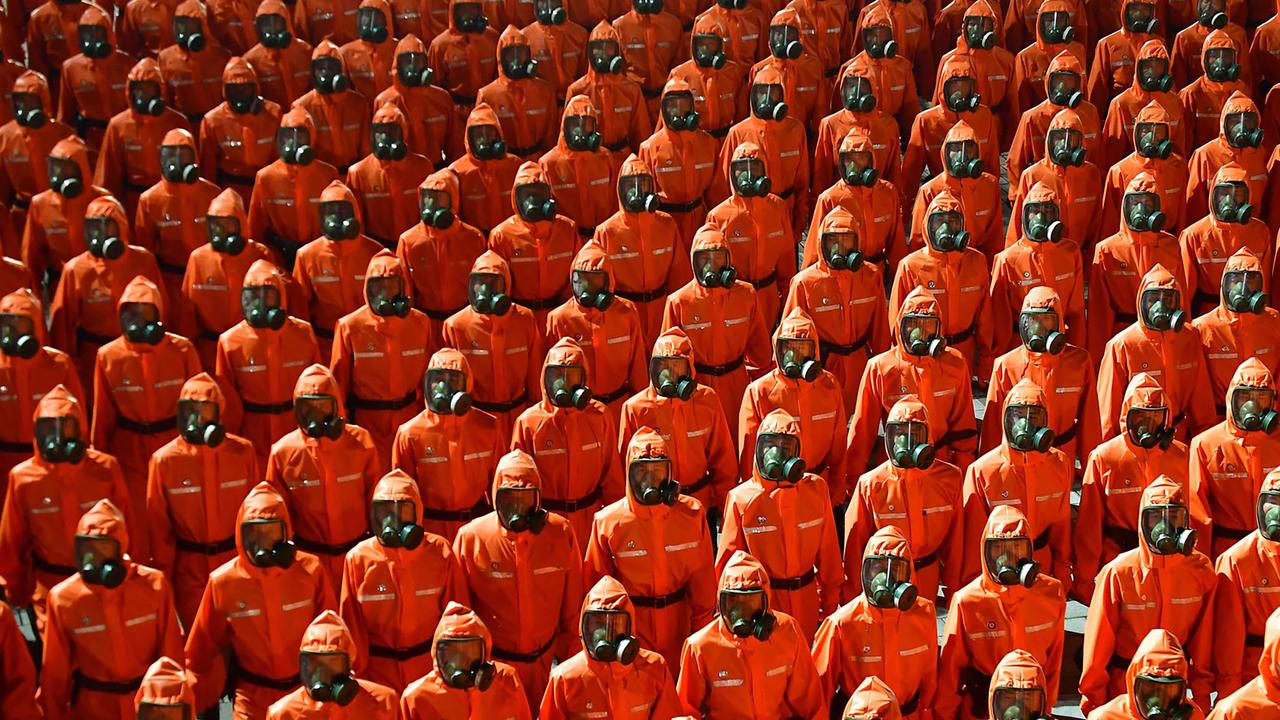
Analysts were quick to note the appearance of a slimmed down Kim Jong-un, who was seen hugging children and waving to the crowds below.
“It’s striking how much healthier Kim Jong-un is looking in these photos from yesterday,” North Korea-focused journalist and researcher Martyn Williams wrote on Twitter.
“However he is doing it — and there are theories — he looks a lot better than he did a few months ago.”
Hong Kong-based journalist Ryan Chan also chimed in, writing: “I have never seen Kim Jong-un in such a healthier body shape before.”
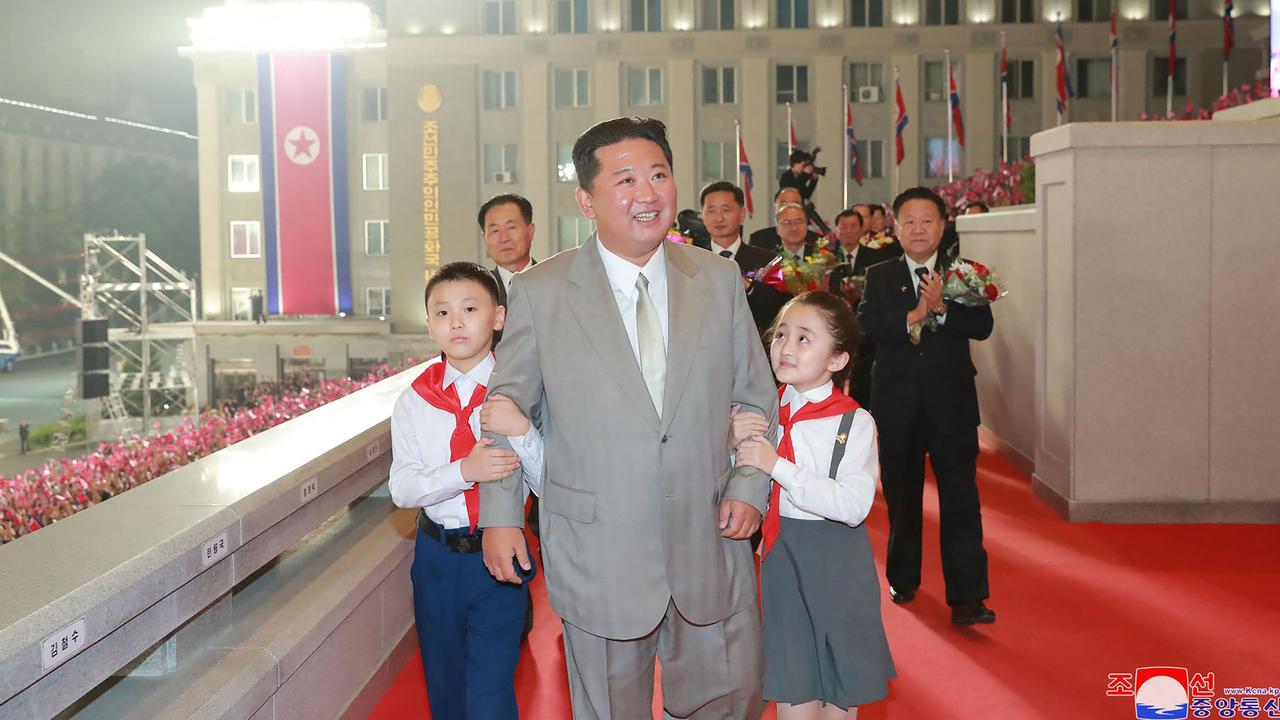
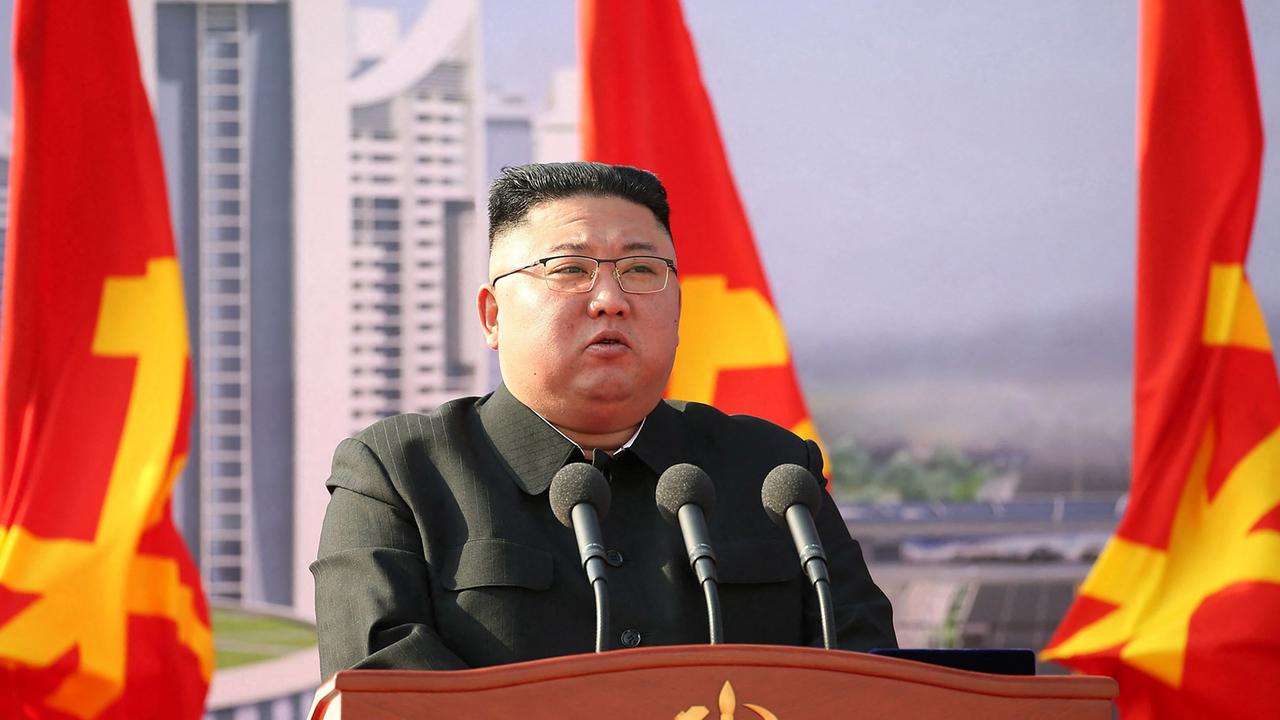
The North Korean leader’s health and appearance have been the focus of speculation in recent months.
According to South Korea’s national spy agency National Intelligence Service, as of November 2020, Kim weighed 136kg — which would make him severely obese.
With little independent information coming from the secretive country, rumours regularly emerge about the leader’s health.
In August this year, he was spotted with a bandage and dark mark on the back of his head.
An in-depth analysis of the dictator’s $12,000 Portofino Automatic watch strap by NK News pointed out Kim had lost a significant amount of weight.
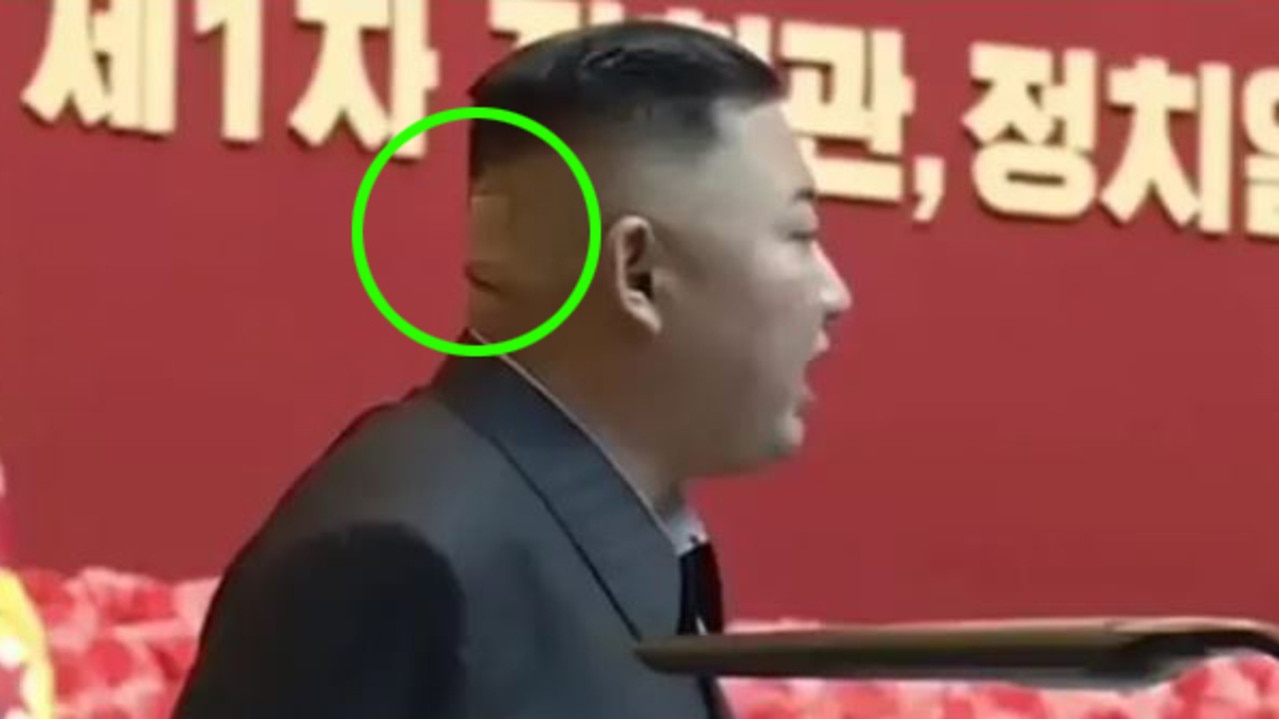
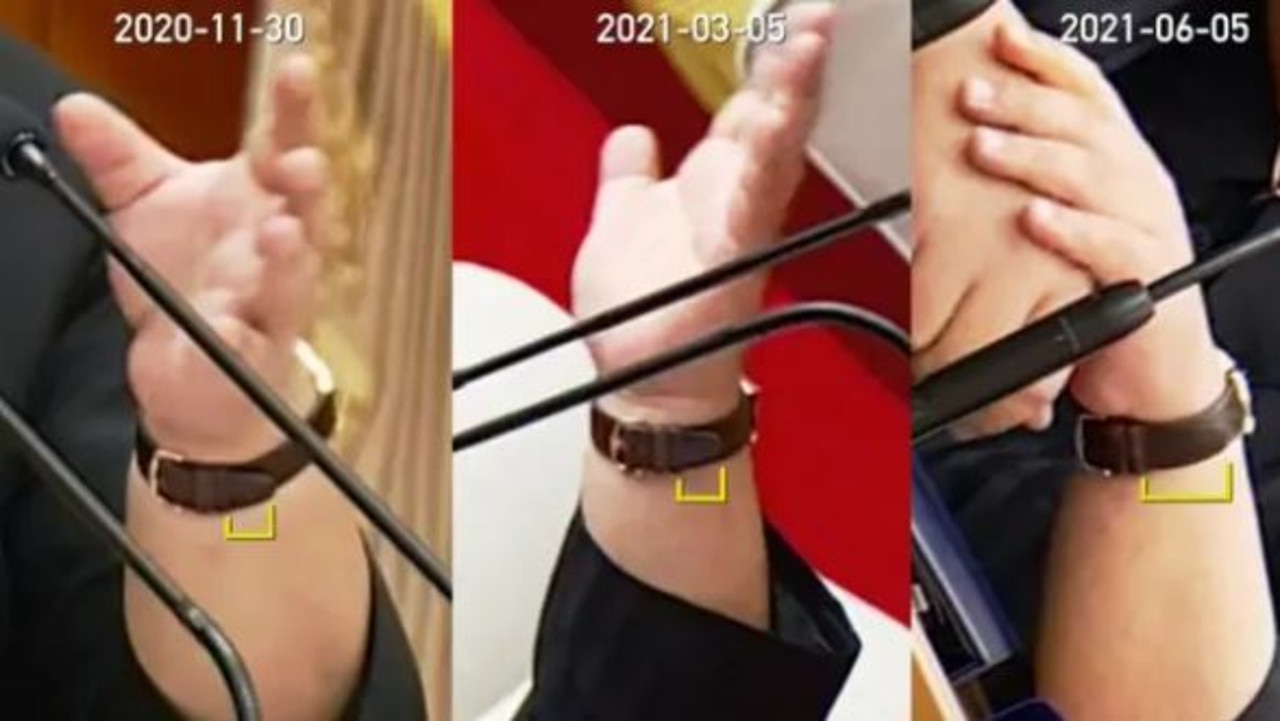
Machines not missiles
Kim, who apparently did not deliver a speech during the event, was observed kissing children who presented him with flowers and waved to the crowd before taking his spot at a balcony overlooking Kim Il Sung Square
There was a different tone at the event compared to the bombastic displays of previous years.
The “paramilitary and public security forces” event was significantly less assertive, including detachments from the railways ministry, Air Koryo and the Hungnam Fertilizer Complex, according to KCNA.
The pageant featured rifle-carrying students, personnel in gas masks and orange protective suits, and mechanised paramilitary units, with none of the participants or audience wearing face masks, images showed.
“The parade shows that the government felt a need to build unity domestically — the population is clearly suffering amid the pandemic and social complaints are likely building up,” Hong Min, an analyst at South Korea’s Institute for National Unification, told the New York Post.
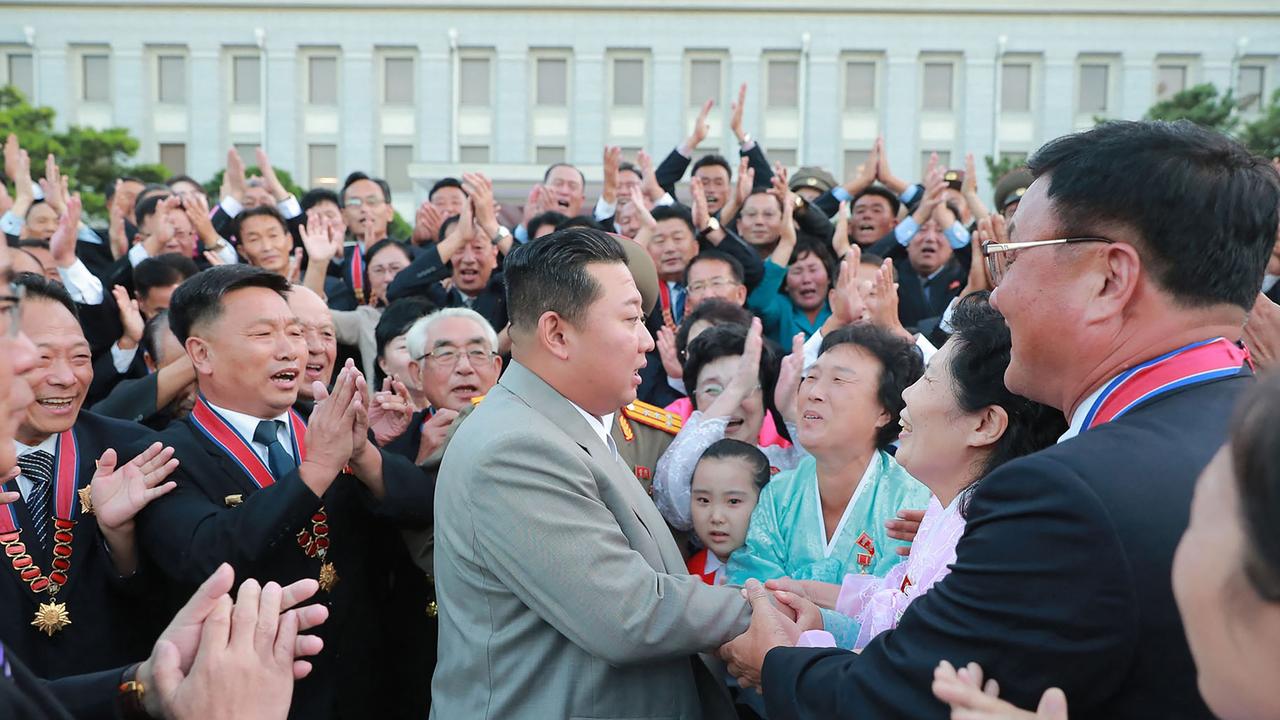
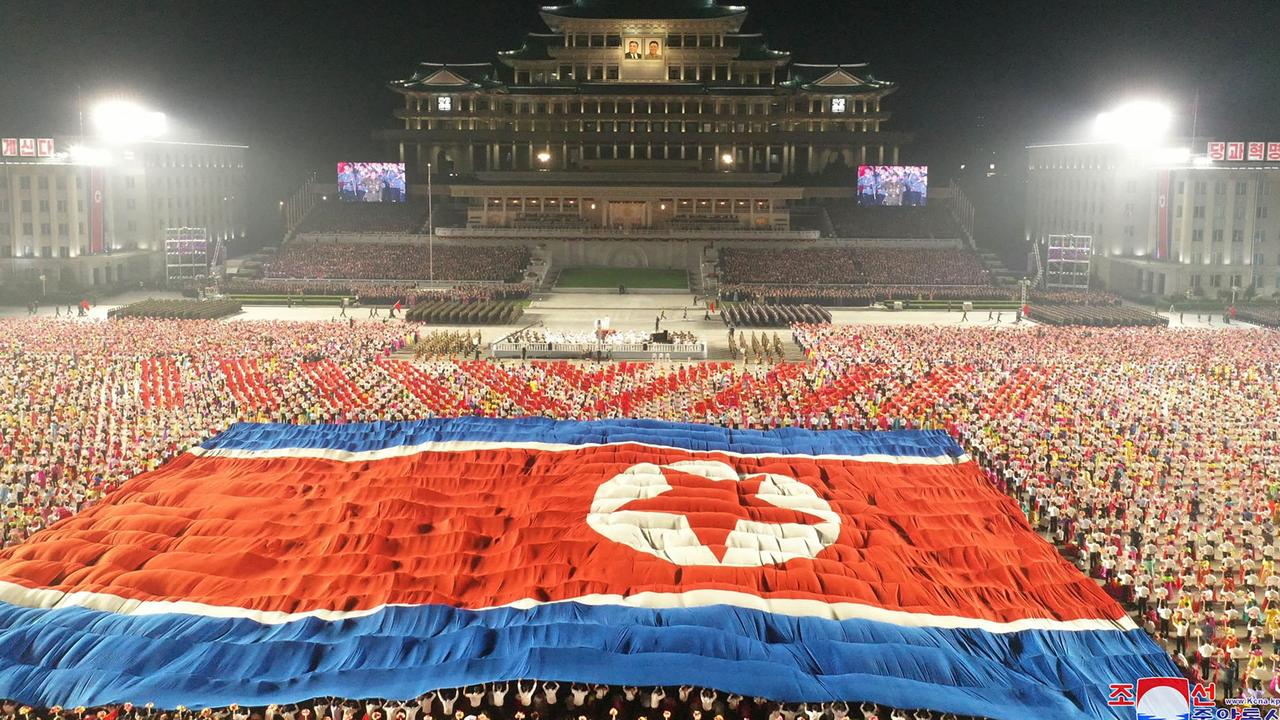
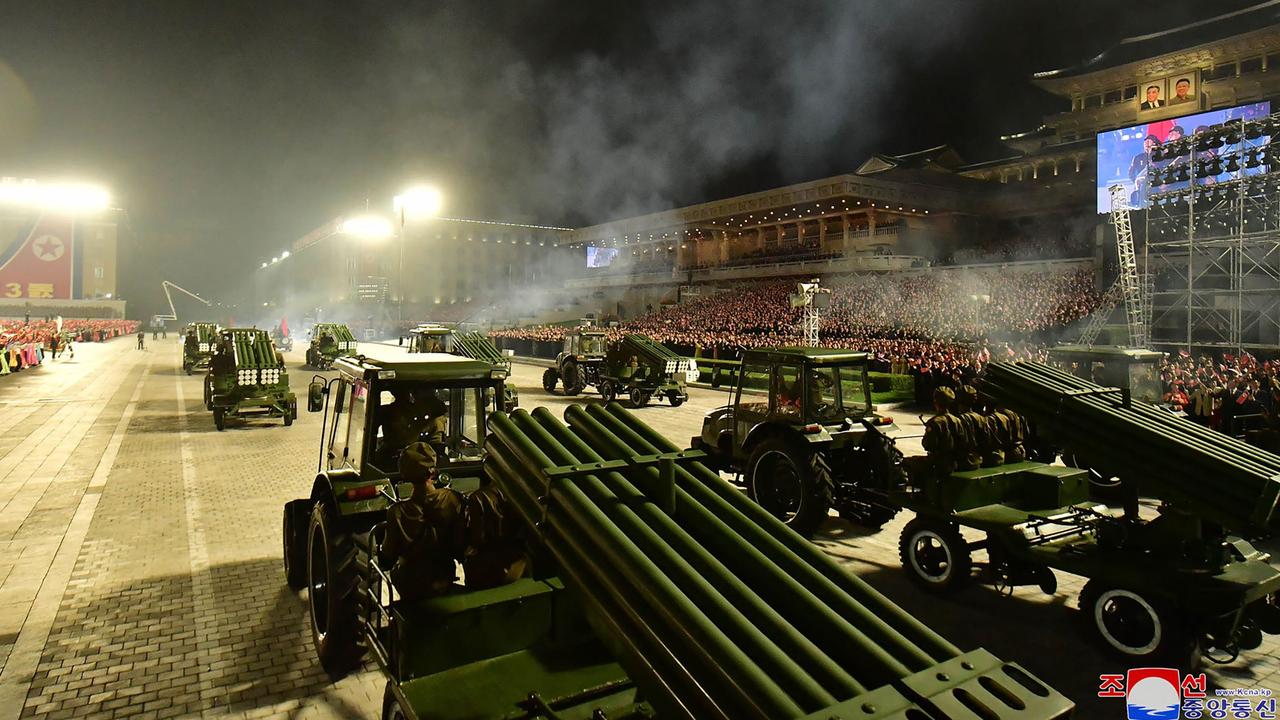
The biggest weapons on display were small artillery pieces dragged by tractors, with KCNA saying they were driven by co-operative farm workers “to pound the aggressors and their vassal forces with annihilating firepower in case of emergency”.
And instead of the giant missiles — whether real or models — that are the usual climax to a military parade, the last unit to enter the square was the public security forces’ fire brigade.
Kim Jon-gun, wearing a pale grey Western-style suit and matching tie, appeared before the cheering crowd as fireworks went off at midnight and “extended warm greetings to all the people of the country”, KCNA reported. It did not quote him giving a speech.
‘Difficulties and challenges’
Pyongyang has previously used parades to send messages to audiences abroad and at home, usually timing them to coincide with anniversaries.
Thursday marks 73 years since the foundation of the Democratic People’s Republic of Korea, as the North is officially known.
But three displays in the space of 12 months — a military parade in January marked a five-yearly congress of the ruling Workers’ Party, and came after one in October for the organisation’s 75th anniversary — is unusually frequent.
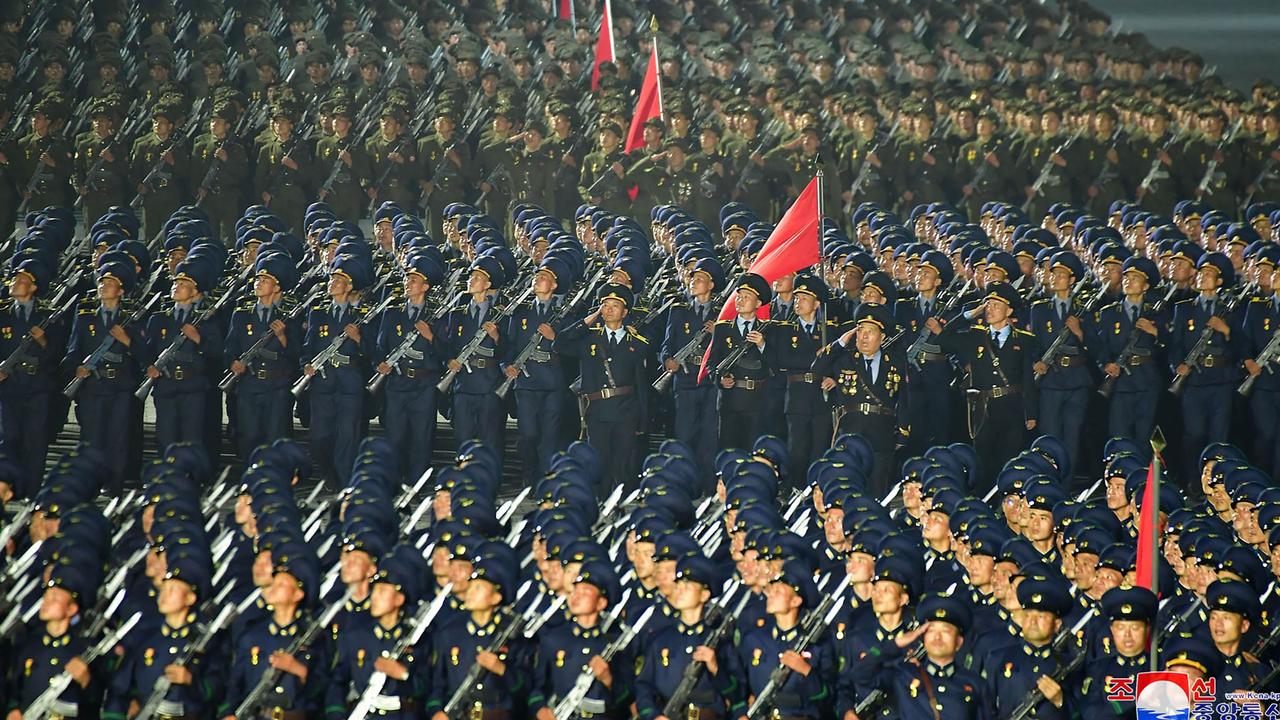
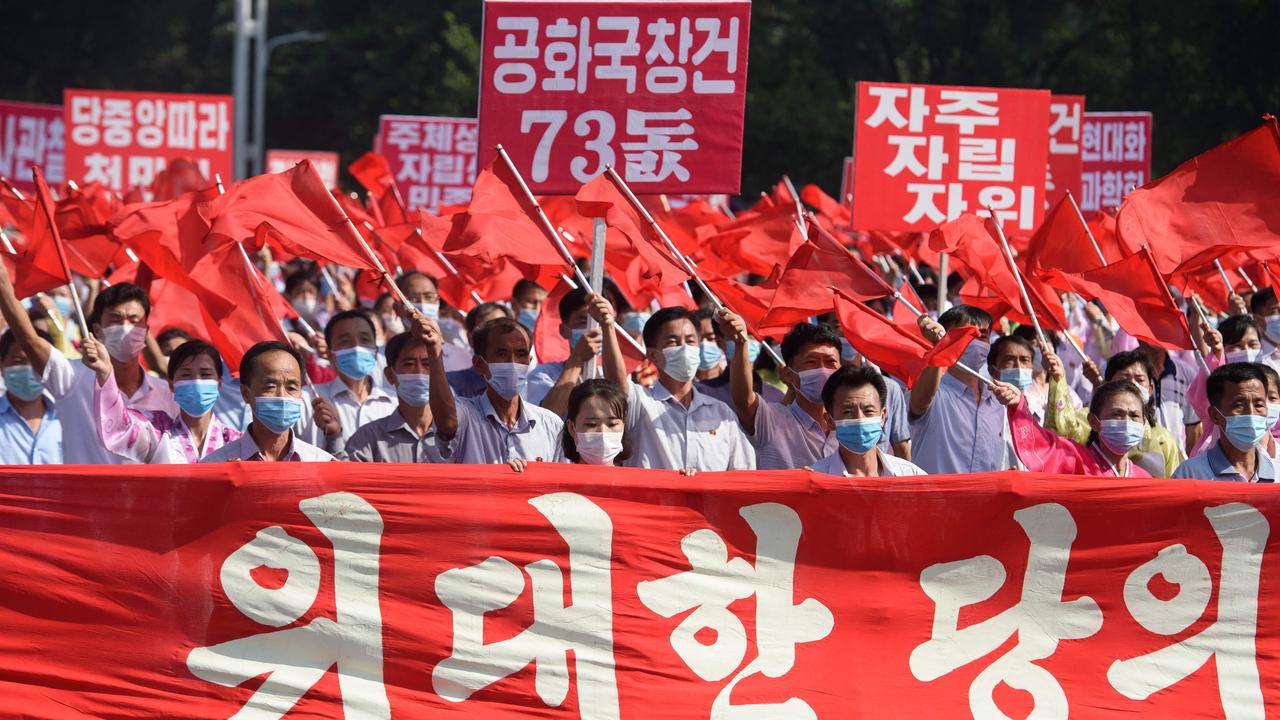
Pyongyang has not carried out a nuclear test or an intercontinental ballistic missile launch since 2017.
Instead, it has looked to exploit parades to pressure Washington without risking escalation, said Hong Min, a senior researcher at the Korea Institute for National Unification in Seoul.
“The only other way to show off their strategic weapons is to launch them, which carries the risk of sparking protest and further international sanctions,” he told AFP.
In contrast, Thursday’s parade was the first of its kind and was intended “totally for domestic purposes”, he added.
North Korea is under a self-imposed Covid-19 blockade, having closed its borders to protect against the coronavirus that first emerged in neighbouring China, adding to the pressure on its moribund economy.
Pyongyang was putting civilians in the spotlight “to address accumulated difficulties and challenges and boost solidarity in the process”, Mr Hong said.
Nuclear talks with the United States have been at a standstill since the collapse of a 2019 summit in Hanoi between Kim and then president Donald Trump over sanctions relief and what North Korea would be willing to give up in return.
President Biden’s North Korea envoy Sung Kim has repeatedly expressed his willingness to meet his Pyongyang counterparts “anywhere, at any time”.
But the impoverished North has never shown any indication it would be willing to surrender its nuclear arsenal, and has rebuffed South Korean efforts to revive dialogue.
Last month, the UN atomic agency said Pyongyang appeared to have started its plutonium-producing reprocessing reactor at Yongbyon, calling it a “deeply troubling” development, and Kim’s sister and key adviser Kim Yo Jong demanded the withdrawal of US troops from the peninsula.
- with AFP




